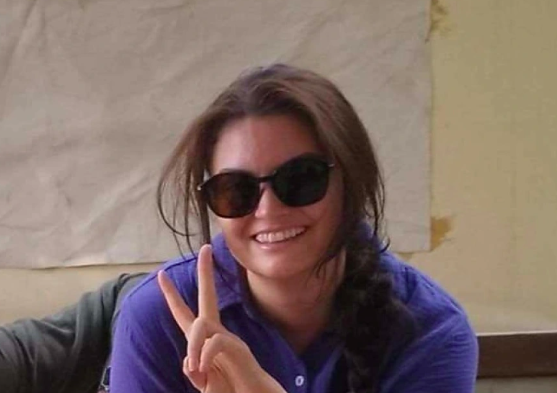The Israeli Defense Forces (IDF) have acknowledged that it is highly likely their troops were responsible for the death of Ayşenur Ezgi Eygi, an American-Turkish activist who was killed during a protest in the West Bank. The Israeli military stated that her death was accidental and expressed deep regret.
This admission comes as U.S. Secretary of State Antony Blinken condemned the act as “unjustifiable and provocative.”
Speaking at a press conference during his visit to the United Kingdom, Blinken emphasized that Eygi’s death highlights the urgent need for fundamental changes in the rules of engagement for Israeli security forces. “No one should be shot and killed simply for attending a protest,” he stated.
Turkish and Palestinian officials claim that Israeli soldiers shot Eygi, who was volunteering with the International Solidarity Movement (ISM), during a demonstration last Friday against the expansion of Israeli settlements in the village of Beita, near Nablus.

On Tuesday, the IDF announced that a probe conducted by commanders concluded that it was highly likely Eygi was inadvertently struck by IDF fire aimed not at her but at the main instigator of the unrest. The official statement explained that the incident occurred during a violent disturbance, during which dozens of Palestinians burned tires and threw stones at Israeli forces.
However, the local community of Beita provided a different account of the events. Residents reported that the protest, held every Friday, was against the construction of the Israeli settlement of Eviatar on land belonging to Palestinian farmers. About 20 Palestinians, along with 10 foreign volunteers including Eygi, participated in the march.
According to Mahmud Abdullah, a local resident, children from the community were throwing stones at the soldiers, who responded with tear gas. “Everyone ran to hide in the olive grove, and then we heard two gunshots,” Abdullah said. Locals pointed out the location where Eygi was hit and a house on a ridge from which they believe the bullet originated.
Jonathan Pollak, an Israeli activist who participated in the protest, said Eygi was struck when two soldiers, positioned on a roof near the conflict area, targeted their group and opened fire. “I saw her lying next to an olive tree, bleeding to death,” Pollak said.
Eygi, a psychology graduate from the University of Washington, had previously been involved in pro-Palestinian protests. One of her professors, Aria Fani, stated that he had tried to dissuade her from visiting the West Bank, but Eygi responded that she needed to “be a witness for the sake of her humanity.”
Her death has brought to the forefront longstanding criticisms that Israeli soldiers who kill Palestinians or their foreign supporters rarely face accountability. Israel insists it conducts investigations into such incidents and takes action when criminal responsibility is found.
Additionally, Israeli settlement plans in the West Bank remain contentious, as they are deemed illegal under international law—a stance that Israel disputes.
Ask me anything
Explore related questions





